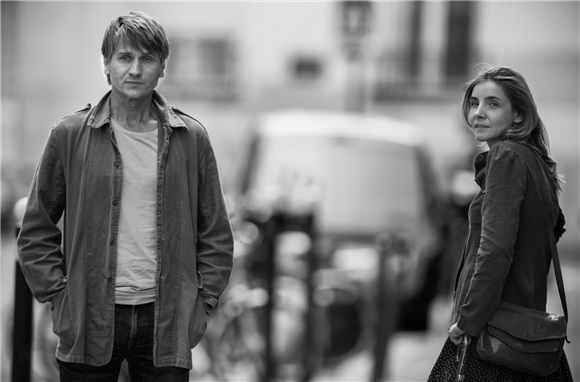
In the Shadow of Women (2015) / Drama-Romance
aka L'Ombre des FemmesMPAA Rated: Not rated, but probably PG-13 for sensuality and thematic material
Running Time: 73 min.Cast: Stanislas Merhar, Clotilde Courau, Lena Paugam, Antoinette Moya, Louis Garrel (voice)
Director: Philippe Garrel
Screenplay: Jean-Claude Carriere, Caroline Deruas, Philippe Garrel, Arlette Langmann
Reviww published January 6, 2016
 In the Shadow of Women tells the intimate story of a
struggling documentary filmmaker named Pierre (Merhar, La Captive), busy working on a film
about a man who fought for the French resistance against the Nazi
occupation during World War II, something that hits close to home for
him, as his father had also fought but never bothered to share the
details before his recent passing. Pierre's wife Manon (Courau, La
Vie en Rose) is always there
for him, in his work and at home, but the suddenly sullen husband
decides to find some breathing room by engaging in a fling with
Elisabeth (Paugam), a younger woman who interns at the film archives.
Pierre thinks that, being the man, it's in his nature to fool around,
but Manon has a secret of her own, which changes his perspective on
things in a way he finds difficult to resolve.
In the Shadow of Women tells the intimate story of a
struggling documentary filmmaker named Pierre (Merhar, La Captive), busy working on a film
about a man who fought for the French resistance against the Nazi
occupation during World War II, something that hits close to home for
him, as his father had also fought but never bothered to share the
details before his recent passing. Pierre's wife Manon (Courau, La
Vie en Rose) is always there
for him, in his work and at home, but the suddenly sullen husband
decides to find some breathing room by engaging in a fling with
Elisabeth (Paugam), a younger woman who interns at the film archives.
Pierre thinks that, being the man, it's in his nature to fool around,
but Manon has a secret of her own, which changes his perspective on
things in a way he finds difficult to resolve.